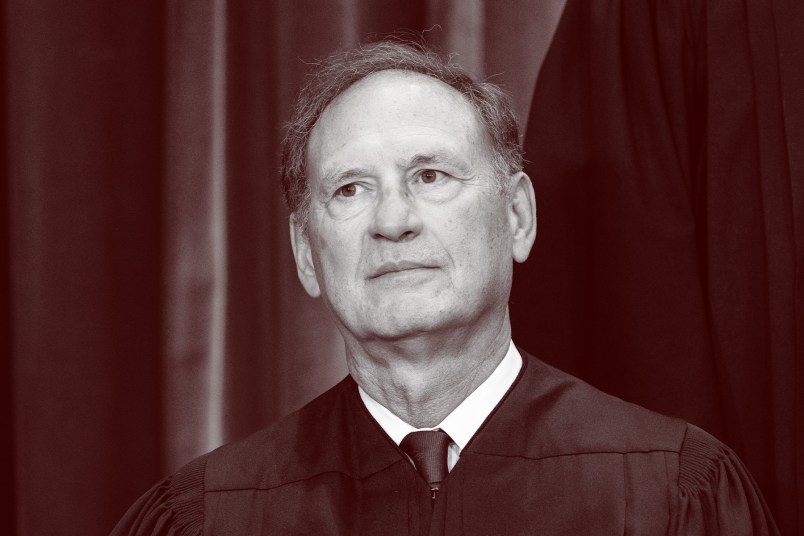Immediately after the Supreme Court released a report on the Marshal’s investigation of the Dobbs leak, one big question — aside from who actually did it — still burns: were the justices themselves investigated?
The report refers to those investigated, at various times, as “employees,” temporary and permanent “Court personnel” — naming law clerks explicitly — and “individuals of interest.”
None of that terminology definitively excludes the justices, though it makes it sound unlikely that they were questioned. For better or worse, the justices are likely not considered “employees” of the Court.
The Supreme Court did not immediately respond to TPM’s questions about whether the justices were interviewed.
Speculation about the identity of the leaker has been rampant since Politico published the draft opinion in May. Former law clerks told TPM immediately after the leak that four categories of Court personnel have access to draft opinions: law clerks, who help research and draft the opinions, secretaries or judicial assistants, who deal with administrative tasks like stamping the completed draft, chambers’ aides, long-time civil servants who physically transport the drafts, and the justices themselves.
Many of the justices’ various underlings would have much to lose if they were caught, the former clerks noted to TPM. Clerking for a Supreme Court justice is an extremely prestigious job and such a breach could imperil the recent law school graduates’ budding careers. The former clerks added that the secretaries are often fiercely loyal to their justices, and that the chamber aides usually have lengthy, apolitical tenures, out-lasting clerks who cycle through.
The Supreme Court Marshal, after conducting “126 formal interviews of 97 personnel,” bringing in outside experts and analyzing forensic evidence, was ultimately unable to identify a suspect.
But if the Marshal’s team overlooked the justices, out of some kind of obsequious respect or fanciful notions of the justices’ unimpeachable moral uprightness, it has left a gaping hole in its investigation.
Just last fall, a former anti-abortion leader went public with his accusation that Justice Samuel Alito — also the author of the Dobbs opinion — revealed the outcome of Burwell v. Hobby Lobby Stores, Inc. weeks before the decision was published. Rev. Rob Schenck told the New York Times that he was informed of the coming decision by dinner guests of the Alitos, who heard it straight from the couple. Schenck had reportedly sent emails indicating that he knew what the decision would be beforehand.
He sent a letter to Chief Justice John Roberts in July 2022 outlining his claims.
“Back in June 2014, when so many awaited the Court’s opinion in Burwell v. Hobby Lobby, I was informed by a donor to the Capitol Hill-based non-profit organization I led that she and her husband would be dining at the home of Justice and Mrs. Alito,” he wrote. “She suggested that in their table conversation, she might be able to learn the status of the case, something she knew I had an interest in knowing. I received a follow-up message from her notifying me she had indeed obtained the information during that visit. We spoke on the phone, and she detailed the revelation.”
Alito called the claim “completely false.”
The Marshal in her report said that “investigators also carefully evaluated whether personnel may have had reason to disclose the Court’s draft decision for strategic reasons.” But that, perhaps, did not include strategic decisions among the justices themselves, who during the period when the leak occurred would have been deciding whether to join, concur or dissent from Alito’s majority opinion. Notably, no justice ultimately pursued a middle road — something shy of overturning Roe completely — of the sort that Roberts seemed to favor during oral arguments.
Thursday’s report makes much hay of the “extraordinary betrayal of trust” and the stiff penalties awaiting any Court employee found to have lied to the investigators. But if the justices themselves, a key part of a very small universe of people who had access to the draft opinions, were omitted from the search, it’s hard to conclude that the investigation matched what the Court intones is the severity of the crime.


 Members-Only Article
Members-Only Article
